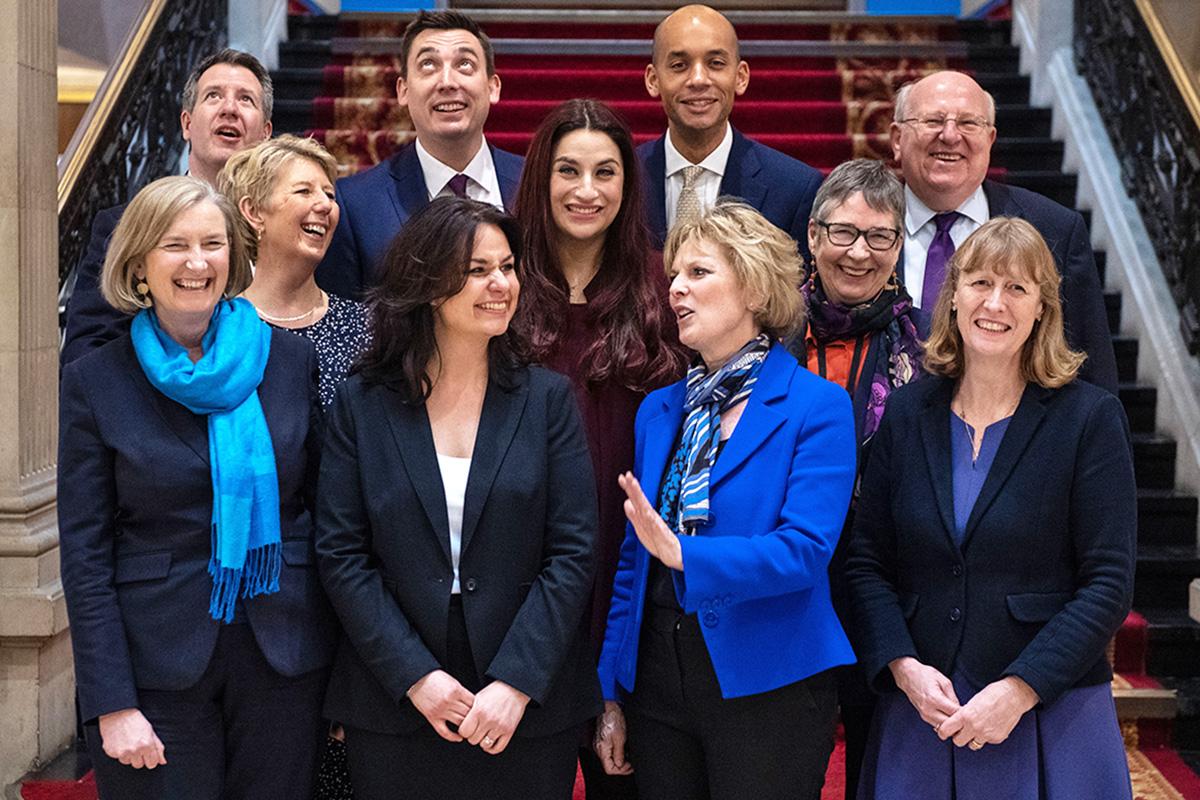Independent Group: Little appetite for new centrist party among voters, polling experts say
New group would 'do well in Oxford, Cambridge and London, but that's about it', says politics professor
Your support helps us to tell the story
From reproductive rights to climate change to Big Tech, The Independent is on the ground when the story is developing. Whether it's investigating the financials of Elon Musk's pro-Trump PAC or producing our latest documentary, 'The A Word', which shines a light on the American women fighting for reproductive rights, we know how important it is to parse out the facts from the messaging.
At such a critical moment in US history, we need reporters on the ground. Your donation allows us to keep sending journalists to speak to both sides of the story.
The Independent is trusted by Americans across the entire political spectrum. And unlike many other quality news outlets, we choose not to lock Americans out of our reporting and analysis with paywalls. We believe quality journalism should be available to everyone, paid for by those who can afford it.
Your support makes all the difference.Pollsters and political experts have cast doubt on the potential popularity of the Independent Group with voters, as the group of breakaway MPs considers whether it can mount a serious challenge to Britain’s established parties.
The eight defecting Labour and three defecting Conservative MPs have not formally established a political party yet, but are thought to be looking at the option, depending on support.
Polls conducted this week indicated anywhere between 8 and 14 per cent of the public would vote for the Independent Group if it fielded candidates at a general election.
Yet political analysts have voiced doubts as to the appetite among voters for a new centrist party, or its ability to win a large number of seats from Labour and the Conservatives.
Matthew Goodwin, politics professor at the University of Kent and co-author of National Populism: The Revolt Against Liberal Democracy, said he was “very sceptical” about claims that a new centrist party could win support across the UK.
“I think it would do very well in Oxford, Cambridge and London but that’s about it. I don’t think anywhere else would warm to that,” he told BBC Radio 4’s Today programme.
Prof Goodwin said Labour’s economic policies were generally popular, as was the Tory agenda on immigration. But he suggested there was little pent-up demand for an economically and socially liberal party, as the Independent Group appears to be.
“I would argue that actually voters are not in that space, that voters are basically looking for a party that’s a bit left-wing on economics (and) more right-wing on cultural issues,” he said.
“That, of course, is not where this new party is aiming for.”
While the collective’s Tory defectors backed government austerity measures, former Labour MP Chris Leslie has revealed the group opposes renationalisation and is against increasing the top rate of tax to 50 per cent – policies that polls have shown to be repeatedly popular.

Deborah Mattinson, pollster with the Britain Thinks research group, said the election system “is stacked against” a big change in the political landscape.
“There is a gap, but I would say that in a way the gap isn’t a policy one – it’s a leadership gap,” she said.
“People are looking for a different kind of leadership, and actually when we dig down to what people are really dissatisfied with, it is about the two leaders that are being served up to them at the moment.”
Earlier this week a YouGov poll found that 14 per cent of the public would vote for the Independent Group if it put up candidates at a general election. A Sky Data poll found 10 per cent of voters willing to back the group, while a Survation poll put it at 8 per cent.
Anthony Wells, YouGov’s research director, said his own company’s poll showed the new grouping was “taking support from the Conservatives, Labour and Liberal Democrats – though it’s Labour who take the biggest knock”.
Leo Barasi, public opinion expert, said he thought it was too early to tell what kind of support the group might be able to build.
“At the moment we’re polling an idea of something, rather than something specific… it feels like these numbers have the potential to change very dramatically, possibly in either direction,” he told the Polling Matters podcast.
Liberal Democrat leader Sir Vince Cable has already offered to work with the new group, hinting at a possible electoral pact by saying it would be “foolish” for them to stand candidates against each other.
Yet Chris Leslie, one of the original seven MPs who formed the group, said although they would be willing to cooperate with MPs from all parties, “we are not joining the Liberal Democrats”.
One of the big issues to be resolved by the breakaway MPs, if it does set up formally as a political party, is settling on a leader.
Two of the Conservative defectors, Heidi Allen and Anna Soubry, said on Friday that ex-Labour shadow minister Chuka Umunna would be the “obvious” person to lead the group.
“You need to establish quite quickly who your leader is going to be, and get your message out there,” Ms Mattinson told Today. “The best moment is quite early on when you’ve still got a blank canvas.”
Just hours after the launch of the group, which was set up partially in response to accusations of antisemitism in the Labour Party, it was caught up in a row over racist language used by one of its members on live TV.
Angela Smith later apologised for referring to ethnic minority people as being “a funny tinge”, claiming she had been “very tired”.

Join our commenting forum
Join thought-provoking conversations, follow other Independent readers and see their replies
Comments